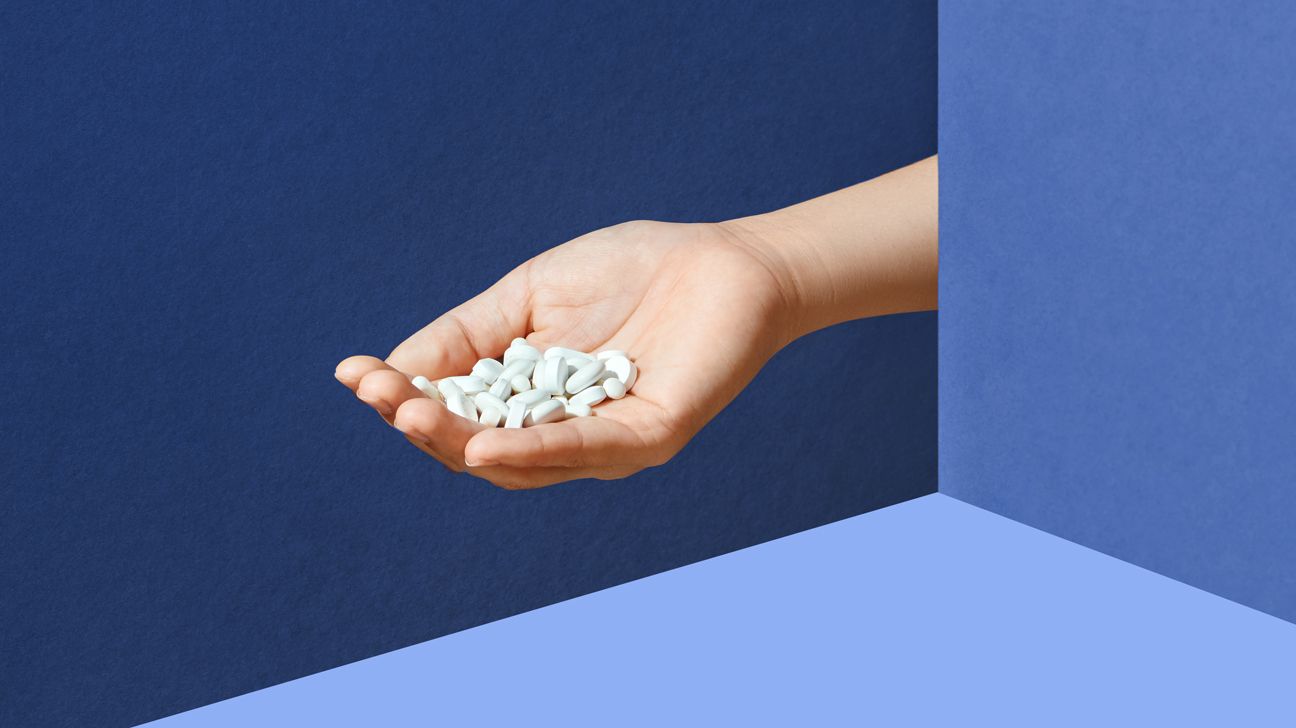Learn how silymarin, milk thistle’s key compound, could protect your liver, improve blood sugar levels, and provide additional health benefits.
If you’ve ever heard anything about milk thistle — a prickly plant named for the white veins on its leaves — it might be that it can help your liver detox after a big night of boozing. Widely available as a supplement, you can get it as a powder, in capsules, or as an extract.
In fact, milk thistle has long been used as a natural remedy to support liver health and claims abound for the other ways the plant could give your body a boost. Why? Milk thistle contains the compound silymarin, a flavonoid thought to have antioxidant properties.
Let’s take a look at the science behind these claims to see if there’s reason enough to boost your confidence in this supplement.
While it’s tempting to believe that anything with antioxidants = really good for you, the truth is, there’s only a small amount of evidence backing milk thistle’s potential health benefits — and not much showing that it’ll do anything to help your hangover (damn).
Here’s what the science does say:
1. Support liver health
There’s some evidence showing that silymarin’s antioxidant and anti-inflammatory properties can help reduce liver damage and inflammation in people with certain liver diseases, like alcoholic liver disease.
But if you’re healthy, there’s no science showing that taking milk thistle will help your liver detox from booze faster or protect your liver from the effects of alcohol.
2. Balance your blood sugar
Got type 2 diabetes? The silymarin in milk thistle has the potential to lower your fasting blood sugar levels and HbA1c as well as improve insulin sensitivity.
Milk thistle isn’t a substitute for diabetes meds though, and it could cause complications in people with diabetes. So if you’re thinking about taking it, definitely talk with your healthcare provider first.
3. Calm an upset stomach
One of milk thistle’s traditional uses is easing indigestion. There’s not a ton of evidence showing that it actually works, but herbal medicine regulators in Germany do list milk thistle as a possible treatment for a sour stomach.
4. Promote brain health
We’re not saying you should count on milk thistle to protect you from Alzheimer’s or anything. But silymarin’s antioxidant and anti-inflammatory properties might protect your noggin from the damaging effects of free radicals, which could promote healthier brain function as you age.
5. Help fight acne
Plagued by pimples? Silymarin’s antioxidant properties just might help boost the effectiveness of other proven treatments. People who took 140 milligrams silymarin and 100 milligrams doxycycline capsules daily for 8 weeks showed a reduction in acne lesions.
But taking doxycycline alone helped reduce acne too, so the benefits of adding silymarin aren’t completely clear.
6. Keep your cholesterol in check
Making milk thistle part of your healthy cholesterol regimen (eating right and exercising, naturally) might be beneficial: One study found that folks who took the herb to manage their diabetes had lower cholesterol levels compared to those who took a placebo.
7. Ease asthma symptoms
FYI, experts haven’t actually studied the effects of milk thistle on asthma in humans. But asthmatic mice who were given silymarin experienced less airway inflammation than those who didn’t get the stuff, one study found.
8. Support immune health
Both animal and human research has shown that milk thistle extract can boost the body’s immune system response. Still, if you’re looking for a supplement to help defend against germs, you’ve got some other options that are backed by a little more evidence.
9. Stave off bone loss
Silymarin’s antioxidant properties might exert a genetic influence that helps prevent bone loss and encourages the growth of healthy new bone, giving milk thistle promise as a treatment for osteoporosis, some rodent research shows.
10. Boost breast milk production
Limited findings suggest that silymarin could encourage the body to produce more prolactin, the hormone involved in making breast milk.
The downside? It’s not fully established whether milk thistle is safe to take while breastfeeding. So you should bring it up with your healthcare provider before giving it a try.
11. Increase the effectiveness of cancer treatments
This is a big maybe. But limited test tube research suggests that silymarin has the potential to make cancer treatments like chemotherapy more effective. But the National Cancer Institute cautions that much more research is needed to know for sure.
Milk thistle is generally considered safe for most people, though it does have the potential to cause gastrointestinal issues, headaches, and itchiness.
It could possibly trigger an allergic reaction, too, especially if you have an allergy to related plants like marigold, ragweed, daisies, or chrysanthemums.
That said, a few specific groups should take extra care with this herbal remedy. Talk with your doctor before using milk thistle if:
- You have diabetes. Since milk thistle has the potential to lower blood sugar, you definitely want to proceed with caution.
- You have breast, uterine, or ovarian cancer, or have endometriosis or uterine fibroids. Milk thistle is thought to have estrogenic properties that could potentially affect these conditions.
- You’re pregnant or breastfeeding. Experts can’t say for sure whether milk thistle is safe for moms-to-be or those who are nursing.
- You take a prescription meds. Milk thistle has the potential to interact with several drugs, including diabetes meds, some antibiotics, immunosuppressants, and hepatitis C meds.
Milk thistle’s antioxidant, anti-inflammatory properties could potentially deliver a number of health benefits. But so far, the evidence is pretty limited, and there’s zero proof that it’ll help ease your hangover.


